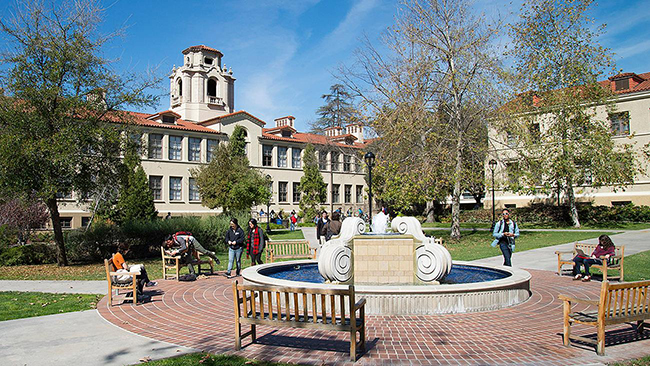One person’s view of the COVID-19 lockdown in Italy
Editor’s note: This is a March 13 email sent to a Claremonter from a friend living in Italy right now. Italy is considered one of the hardest hit areas in the world with the coronavirus. Here is one person’s view.
Let me start by saying things are not good here. Despite what the news media might be reporting or the skeptics might be blogging about, Italy is in dire straits. When the Prime Minister addressed the nation two nights ago, he spoke five words that have driven fear into the strongest of us optimists.
“We are out of time!” is exactly what he said when he announced a nationwide lockdown. Here are some of the latest statistics.
All 20 regions have been impacted to varying degrees, with Lombardia (Milano), Emilia-Romagna (Parma, Piacenza and Modena) and Veneto (Venezia) the worst hit.
To provide a frame of reference for how fast this contagion is sweeping across the country, just three weeks ago we had 22 confirmed cases, two deaths and only two regions affected. To say we have a wildfire of infection here is a bit of an understatement.
Please keep in mind, we have a total population of a bit more than 60 million people. Italy is a bit bigger than Florida and a bit smaller than California but with a population density of 200 people per square kilometer. And for you non-metric people, a square kilometer equates to just a little over 1/3 of a square mile. Try to imagine just how packed we are here…elbow to elbow! You cannot swing a cat by the tail without hitting another Italian.
Italy’s hospitals, clinics and medical centers have been overwhelmed and over-run by the ever-increasing number of coronavirus victims, to the point where the health care system is on the verge of collapse. The already-bankrupt central government is unable to fund the system, requiring legislators to seek loans from outside-Italy sources. Doctors and nurses are working around the clock, every day, to the point of exhaustion. Many are becoming infected by the very virus they are trying to treat, thus creating a dangerous and alarming lack of qualified personnel.
As I wrote previously, it has now become the official policy of the Italian government to require physicians and health care workers to deny medical treatment and care (other than to stabilize and comfort) to the elderly and infirmed…those whose pre-existing respiratory and/or cardiac conditions would statistically prevent recovery. For all intents and purposes, these people are being turned away from hospitals and clinics and sent home to die.
ANSA, Italy’s official public notification agency, reports that 45 percent of those who have died were aged 80-89, 32 percent were in their 70’s, 14 percent were over 90, 8 percent were in their 60’s and two percent were aged 50 to 59. The government has imposed drastic measures to try and stop the spread of the virus, including but not limited to establishing a country wide ban on non-essential movement.
We are required by the new edict to stay in our homes. Should we need to go out for any reason, a special government permit is required. Each permit must be downloaded from a government website and filled out by the individual or his/her employer. Local and military police are stopping all moving vehicles to verify the reason for travel. They scan the permit and upload to a central agency. Anyone found with a forged or illegitimate permit faces fines, arrest and incarceration.
Only one member of each household is permitted to go out and shop for groceries and only within their respective communities. Gatherings of more than four people are illegal and any person found within 1 meter of another person will be fined, arrested and possibly incarcerated.
All non-essential medical appointments are cancelled until further notice, including chemotherapy. Dialysis patients are limited to 1 treatment per week. It is now illegal to self-present at Emergency Rooms. Anyone having or suspecting symptoms must call ahead and register. Field first-responders go to the patient’s home with a testing kit and to make a general health analysis
Schools, universities, government agencies, museums, sports arenas and most tourist attractions have been shuttered and will remain closed for the foreseeable future.
Italian courts have also been closed. Italian prisoners, whose visitation privileges have been curtailed, are rioting and setting fire to cell blocks and prison rooms. Immigrant and gypsy beggars, those who usually accost shoppers in the piazza or outside supermarkets, have been removed.
Most airlines have cancelled flights into or out of the country. Bus and train stations are patrolled by military personnel. The autostrada (turnpike) and the tangenziale (peripheral highways) are heavily patrolled by police on the ground in cars as well as helicopters and small aircraft in the air.
It is like a war zone here and the Italian people have been taken prisoner by a microscopic enemy!
Civil Protection Chief and Coronavirus Emergency Commissioner Angelo Borrelli held a press conference earlier today wherein he announced consideration was being given to, and I quote, “closing everything!”
Italy’s Organization Mondiale Della Sanità, part of the World Health Organization, officially declared the COVID-19 virus to be a global pandemic, with the potential of infecting up to 70 percent of the world’s population and capable of killing millions in a very short period of time. No other virus outbreak, including Ebola, SARS or MERS, has had the destructive and lethal potential of COVID-19.
No doubt, sometime before the end of this year, this contagion will have been controlled and in our rear-view mirror. But the economic damage it will have wreaked will have very, very serious effects on Italy’s already-struggling economy.
The tourist industry alone is projected to lose between—$20 to $30 billion—by year’s end. This translates into failed businesses, shops, travel agencies, etc. This means unemployed people by the tens of thousands. And should Italy default on its national debt, which is immense, it will have a serious effect on the stability of the European Union.










0 Comments